A good stance and posture reflect a proper state of mind. – Morihei Ueshiba. Almost all of us must have been nagged by our elders to avoid sitting in a hunchback position or read while lying down. Indeed their concern is serious because our posture can actually make or break our muscles and affect our body’s reaction to fatigue and tiredness. People spend a substantial amount of time throughout the day and nights sitting in front of their laptops/books to work/study. It has become extremely essential that we remind ourselves to sit up straight and not inculcate a bad posture in our lives. If you are thinking about what is the best posture for studying, then don’t worry, we’ve got your back! This time Literally! Read this blog to know about the correct posture for studying along with the importance of maintaining a good posture and its various health benefits.
This Blog Includes:
What is the Best Posture for Studying?
A posture could be any position you hold to support your body while sitting, standing, walking, etc. to maintain stability and balance. The posture we use while sitting/not moving is called a static posture. The spinal cord plays an essential role in building your posture. The natural curves of the spine at your neck, mid-back and lower-back should be aligned in a manner so as to maintain the curves. Does posture affect studying? It is essential to know the best posture for studying and working where the alignment doesn’t make your muscles bend excessively or cause too much strain which can badly affect your body.
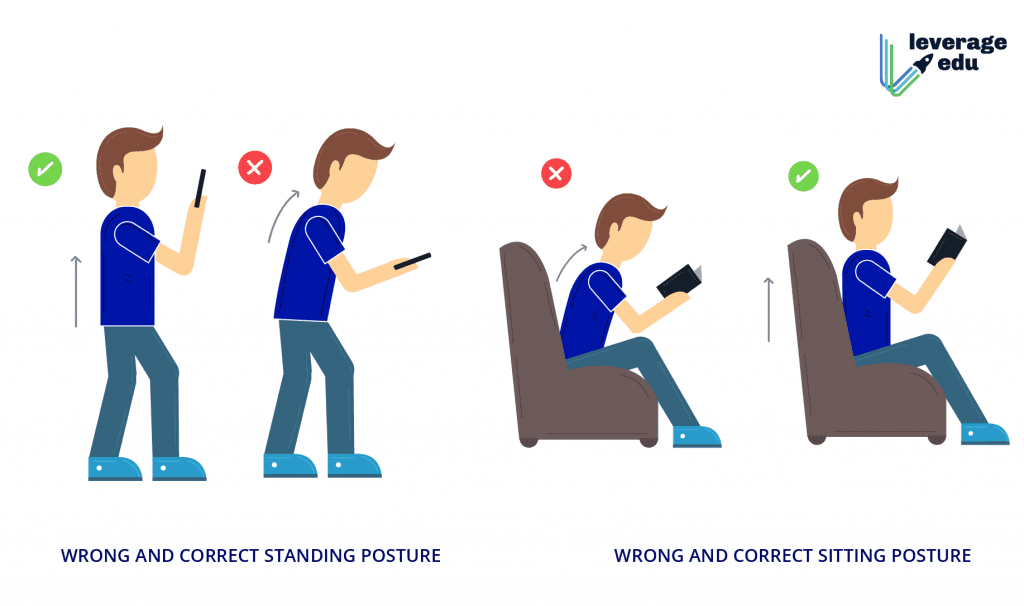
How can I improve my posture when studying? Now that you are aware of the importance of posture, here are the science-backed ways to find the correct posture for studying and working:
- The correct posture for studying as per doctors is when you do not lean forward and sit with a straight back on the chair and ensure that your back is not touching the chair. Follow a vertical or a rested position while studying on a chair. If your chair is not comfortable for resting your back, then take a cushion, pillow or a rolled-up blanket for good back support.
- Your choice and arrangement of the furniture is the key to finding the correct posture of studying. Make sure that you have a comfortable chair that is adjustable. Make sure the chair has good and comfortable back support. The desk should be of proper height and positioned so as to give you sufficient knee space.
- To find the best posture for studying, sit down and position your limbs. Avoid leaning on the desk and keep your back erect pressing slightly towards the chair. Keep both your feet straight on the ground. If you’re working on your computer, keep it straight at an arm’s length to avoid straining your eyes.
Correct Placement of the Chair and Desk for the Best Posture for Studying
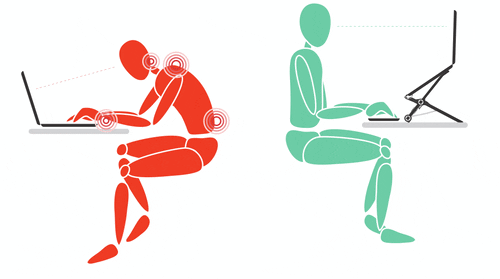
- Your chair should be supportive enough and adjustable for your back.
- The correct posture for studying is when your back is touching the chair and is well-supported. Sit in a vertical posture and do not try to lean forward.
- The height of your chair should be adjusted in a way that your feet are placed well on the floor and you do not keep them dangling. This way, you can also prevent a slouching posture.
- The desk you are using for placing your notebooks or the computer should be at the right height so that you do not lean or slouch to focus. Place the computer on your laptop an arm’s length away to keep a good distance between your eyes and the screen. This will also help you avoid screen fatigue.
- Avoid low light for studying, be it using the computer or writing/reading.
Correct Sitting Posture for Studying
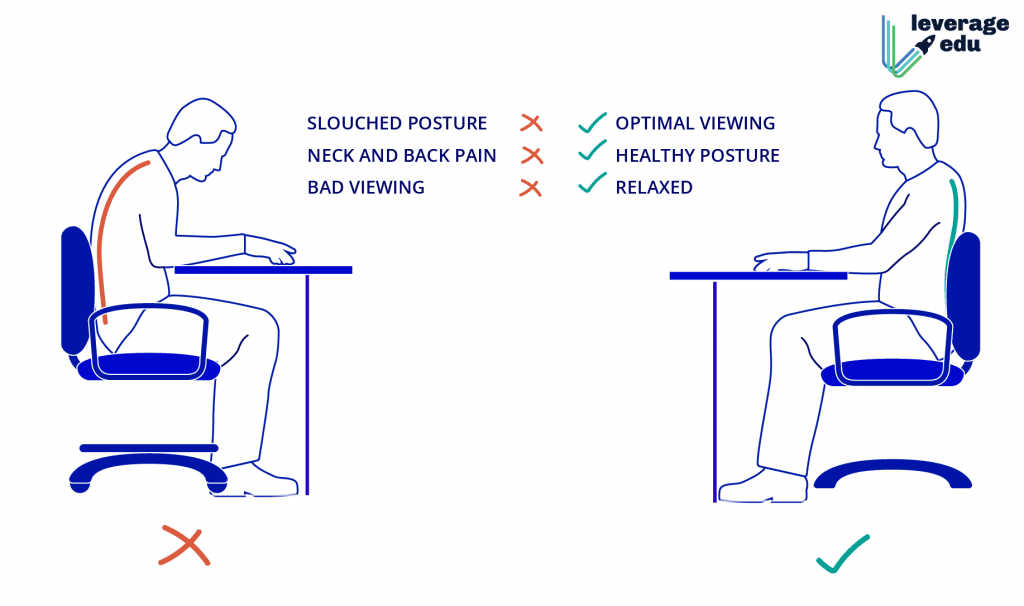
Here is how to correct your posture for studying:
- Take a 10-minute break where you stretch or walk around. Do this every half an hour to avoid cramps and for effective blood circulation in places where your limbs or muscles feel stiff.
- If you have had a bad posture for a long time and are facing difficulties with correcting it, there are back posture correctors available which you can use but make sure to get in touch with a physiotherapist first.
Best Position to Study on the Floor
There are many benefits of sitting on the floor as it boosts flexibility and mobility in your body. If you are studying on the floor, taking an incorrect posture can lead to back issues. Here is how you can find the best position to study on the floor:
Study while sitting cross-legged on the floor, make sure that you shift your weight on your hips and not on the feet. You can also minimise the pressure on your back and hips by sitting on a cushion or putting it beneath your knees.
Best Posture for Reading

While the posture for studying and reading can be similar, many prefer to read in their unique posture like lying on the stomach or scouching on the sofa. As you take a reading position for a longer duration, an incorrect posture can cause strain in the neck or the back. Here are the best ways to find the correct posture for reading:
- Hunching or bending your back can lead to strain the back thus keeping your back straight while reading is essentially important.
- Keep a neutral spine by sitting up straight with tucking your chin down and keeping your neck even with the shoulders.
- Bring the book closer to your eyes so that you don’t have to slouch down and put excess strain on your back or neck.
Best Posture for Studying on Bed
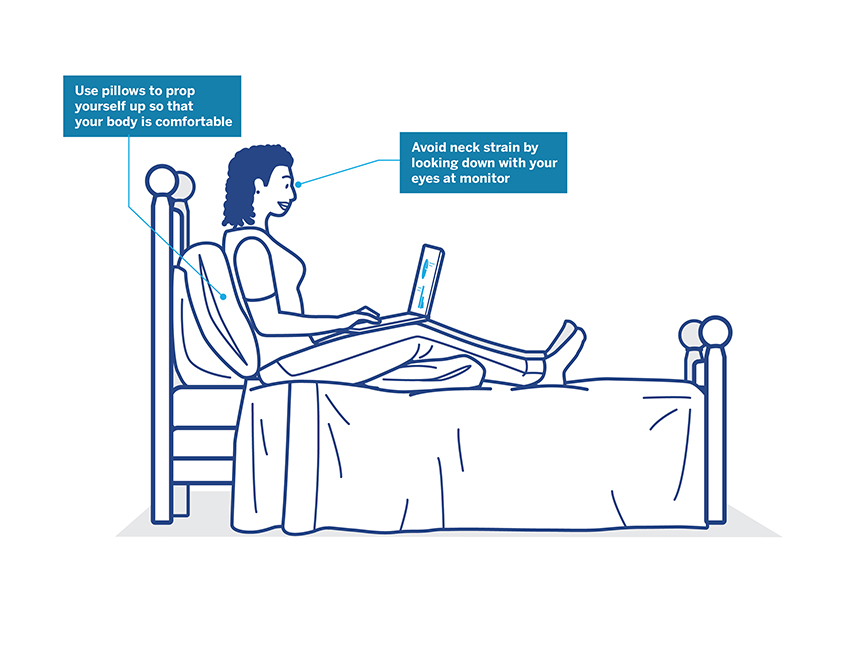
Studying on bed is one of the trickiest places to be. Imagine sitting with everything cosy and slowly slipping down and falling asleep! This happens with a lot of us. While we recommend not studying in bed for along time, there are times when we just cannot avoid it. So, here is the best posture for you to study in bed.
- Sit against a wall, with not more than two pillows to maintain your posture.
- Use a study table for the bed and do not rely on keeping the books on your lap. This will get messy and distracting for you.
- Make sure there are no other distractions like television or smartphone.
- Most importantly, do not get too comfortable. Keep a straight spine and do not aim for a cozy environment.
Why does Posture even Matter?
Medical and Psychological researchers have consistently emphasised upon the connection of a good posture with psychological factors like positive memory, confidence, cognitive stress, energy, etc. A study conducted through health psychology also concluded that the way we sit during work/studies can affect our overall mood. Apart from the physiological damage, a bad posture can also result in a negative mood and reduce focus. Despite there being various other factors that affect cognition, it is undeniable that posture certainly can be one of the factors. A relaxed posture also seems to activate the right (creative) side of the brain. There was a prominent study done by Harvard University and Columbia University researchers where they tested the intake of risk by participants while they were sitting in a powerful pose or in occupying minimal space (bad posture), and how it subconsciously affects decision making. They found out that those sitting in a powerful posture not only made rational decisions but were 45% more likely to take a risky bet. Therefore, it is essential to practice the best posture for studying and working to ensure maximum productivity.
Benefits of Maintaining a Good Posture
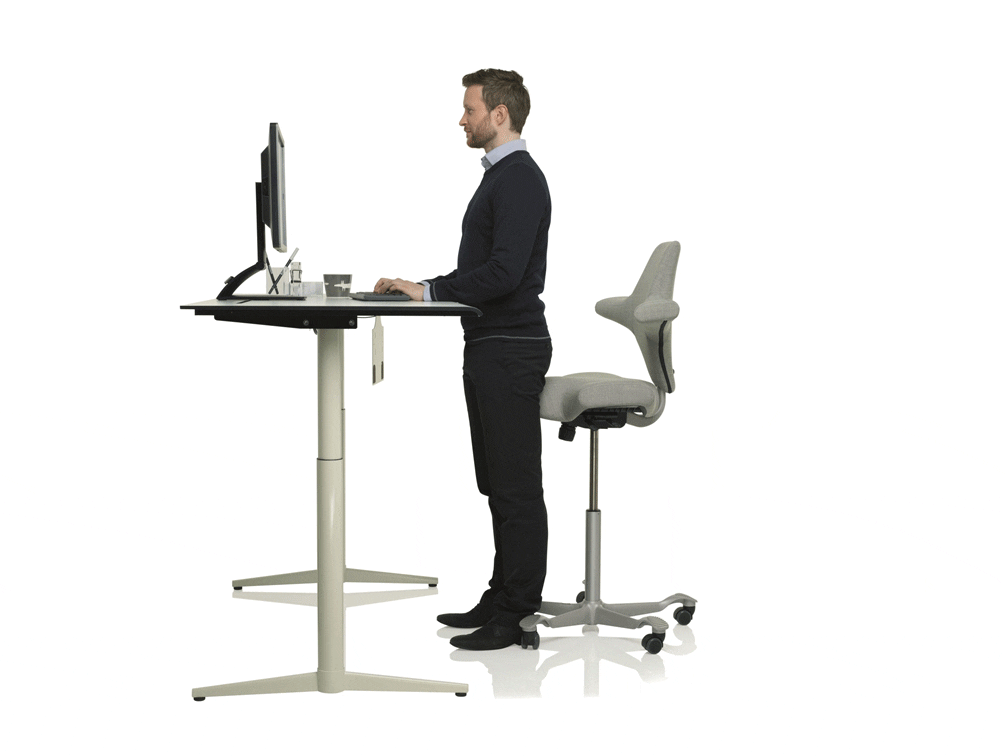
Apart from the various psychological benefits, good posture plays a huge role in your physiological well-being.
- Maintaining a good posture reduces the chances of having headaches. An unaligned posture increases strain in your neck. We often bend or lean forward while looking at our laptop or phones which results in overstretching of tendons and ligaments in the neck. Such problems in the neck lead to neck spasms, inflammation and dizziness.
- Using a good posture for studying or working also effectively eases breathing. When you slouch or lean on your desk, it tightens the rib which makes it difficult to breathe. Sitting upright helps ease the pulsating movement of the diaphragm.
- As concerning it is, back pain is one of the most common issues for adolescents and adults. Again, it all spirals down to a bad posture. An aligned posture can cause back pain relief instantly.
Along with these, using the aforementioned ways to ensure the best posture for studying, you can avail many psychological benefits such as a confidence boost, positive mood, improved focus and concentration.
Consequences of a Bad Posture
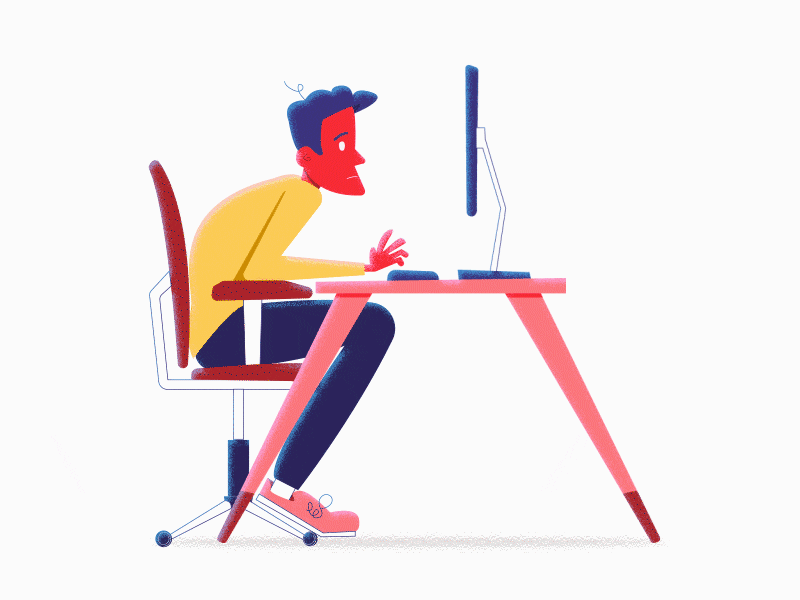
Still not convinced if sitting properly can help your body feel less stressed and strained? Take a look at some shocking dire effects of a bad posture.
- A bad posture for studying can lead to Carpal tunnel syndrome because of the tightening of muscles.
- Leaning or bending while sitting can also lead to poor digestion due to the pressure on the abdomen.
- A few long term effects are higher risks of having cardiovascular diseases due to the tightening of blood vessels. It can also lead to an impaired lung function, hyperflexion and hyperextension, etc.
We hope that this blog on the best posture for studying helps you save your back from the extreme adventures a lousy posture can take you on! While a good posture can help you focus, taking professional guidance for your academic and career decisions is essential to actualise your dream career! Our Leverage Edu experts are here to guide you at every step of your academic and career journey to ensure that you make informed decisions towards a rewarding career! Sign up for a free session with us today!

 One app for all your study abroad needs
One app for all your study abroad needs


















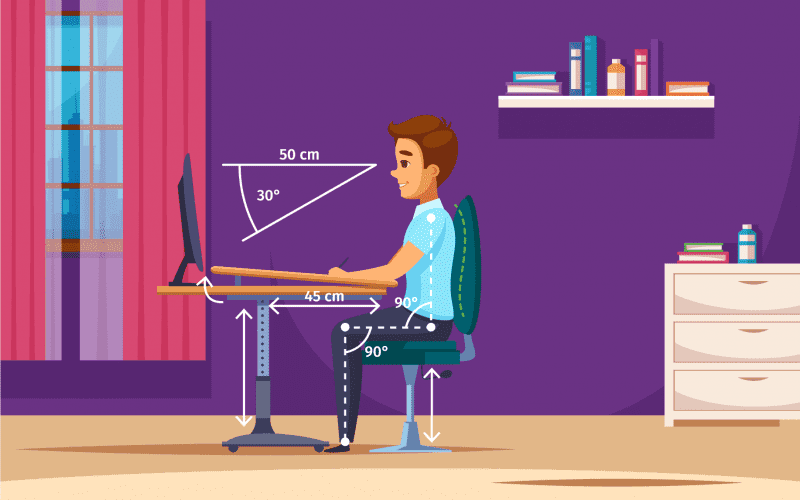


 45,000+ students realised their study abroad dream with us. Take the first step today.
45,000+ students realised their study abroad dream with us. Take the first step today.

